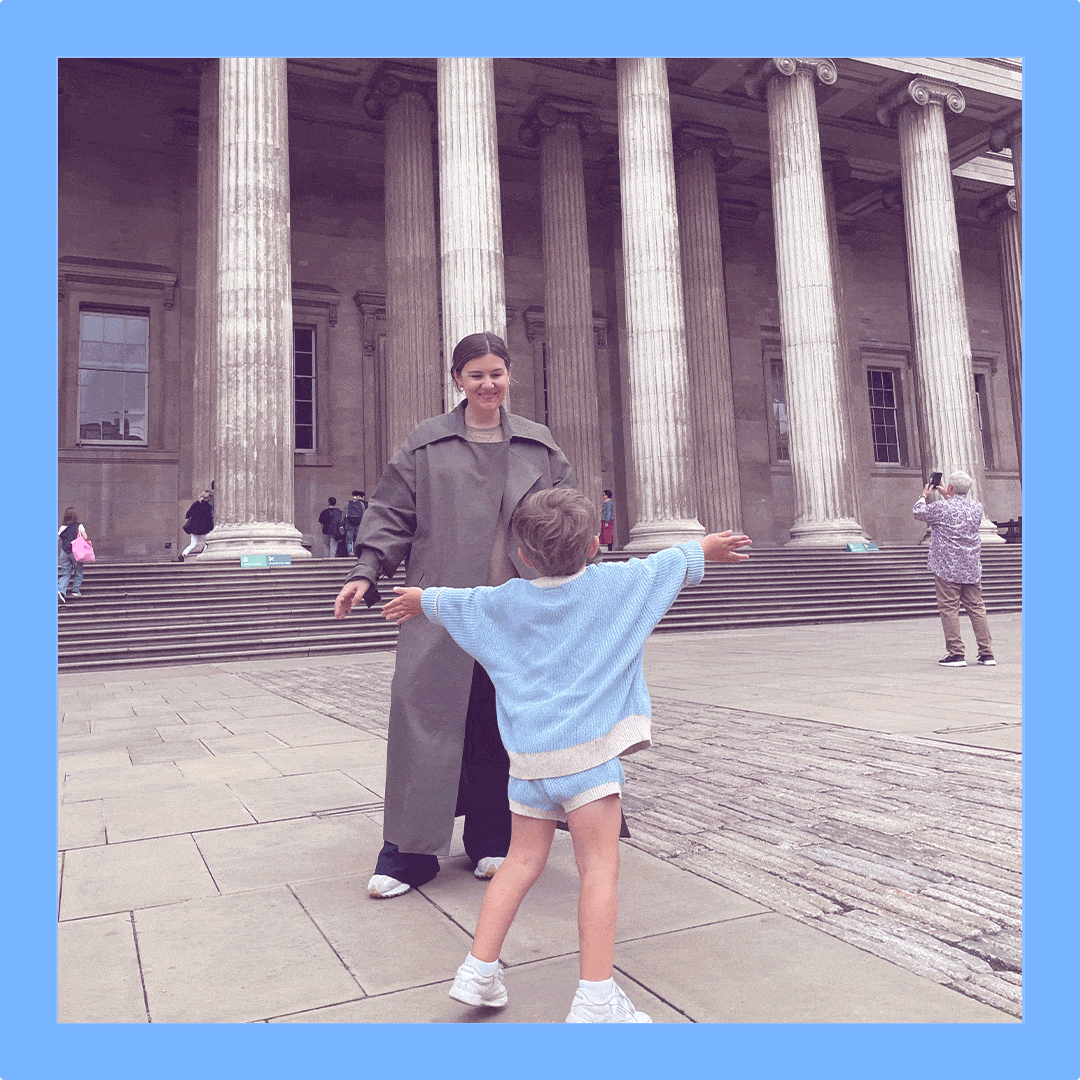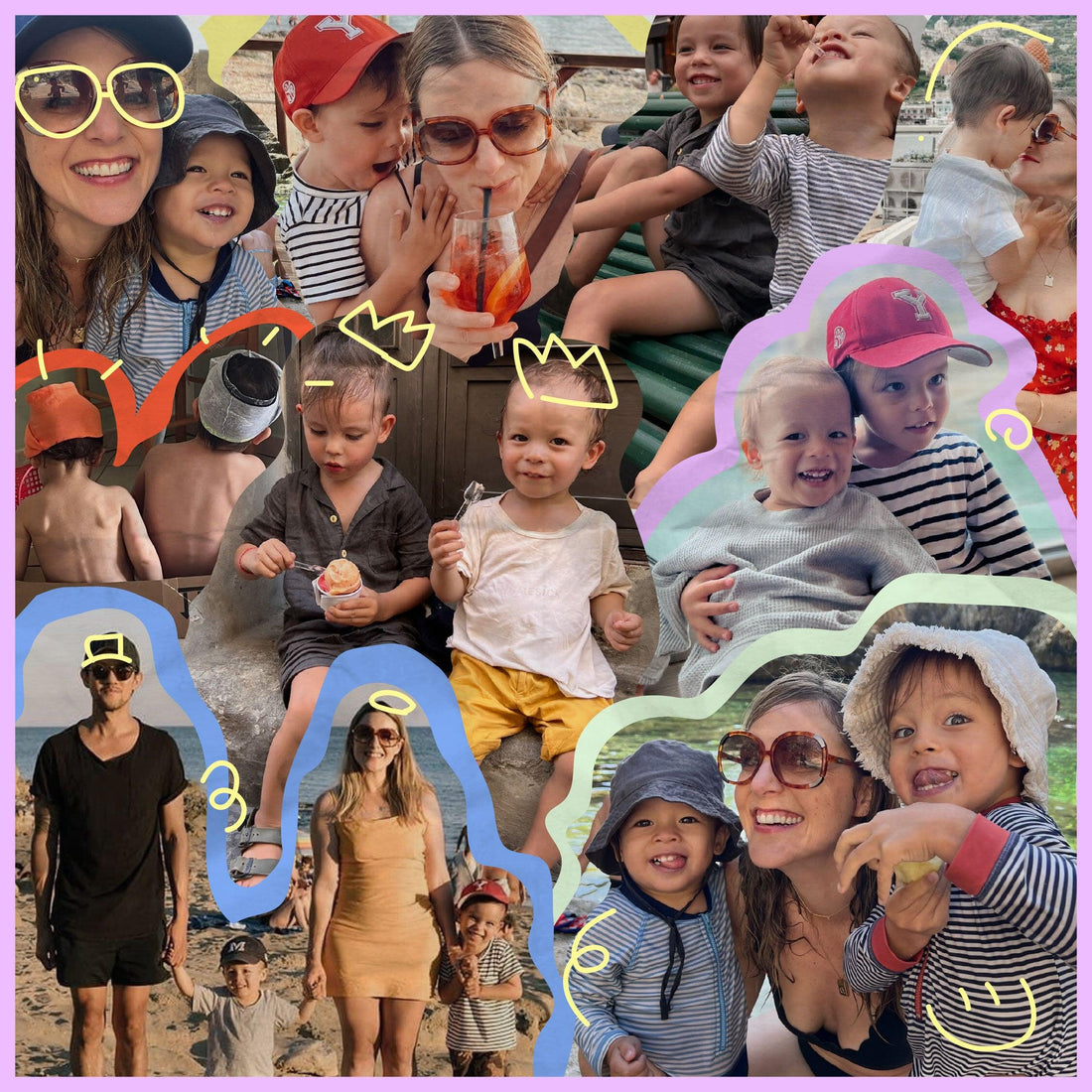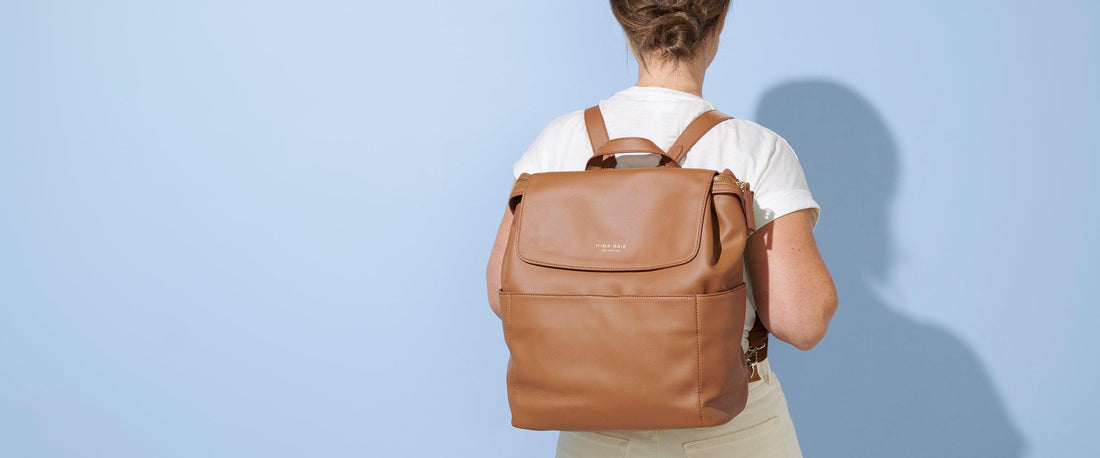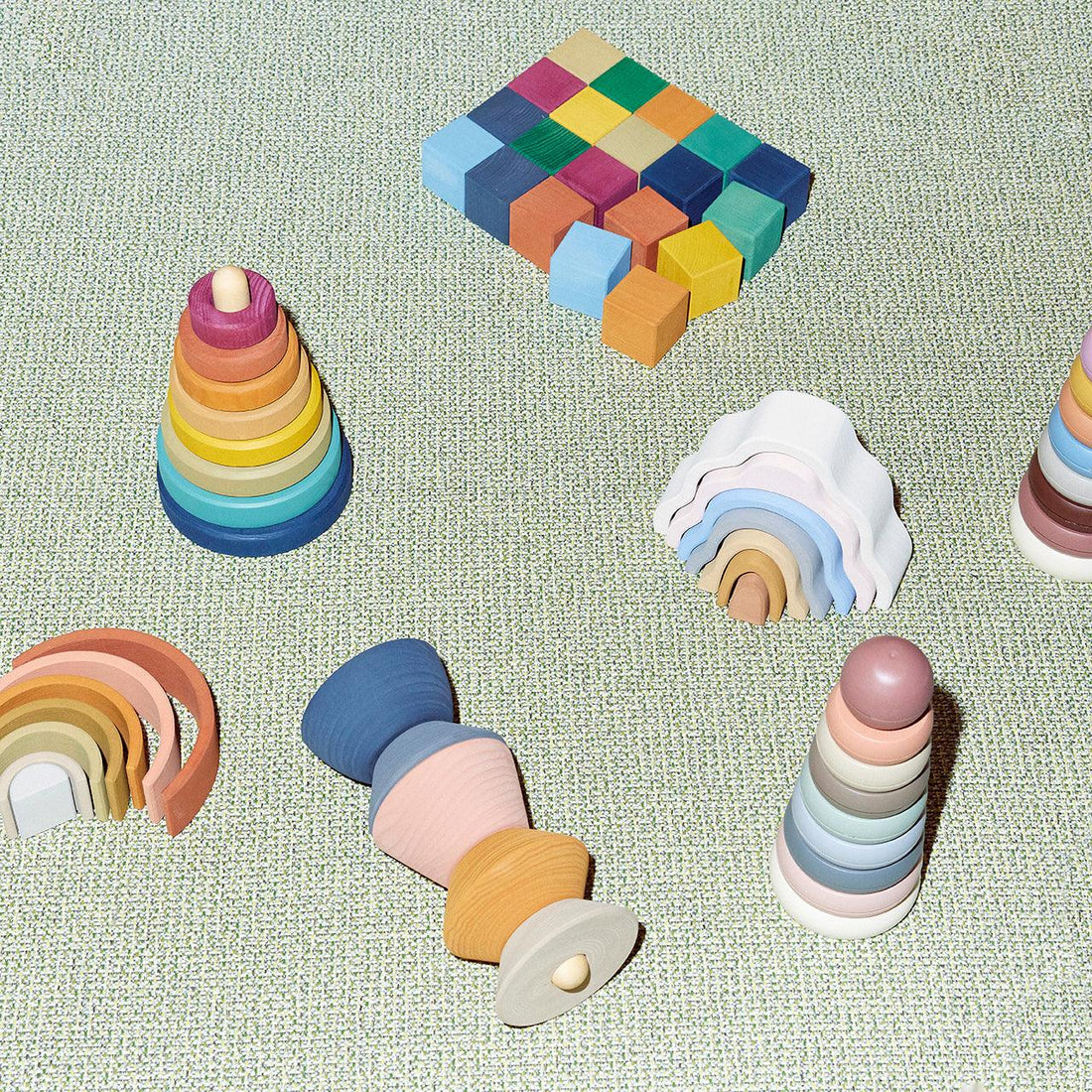And they actually work.
As a family, we’re not great at routine. Particularly not in the last year, when my son, August, turned three. He’s at daycare three days, and has a fortnightly rotation of grandparents and parents who fill in the other days. Both sets of grandparents live more than an hour away, and back in April we bought a house two hours away that we renovate on weekends. It’s a lot of movement for a person who’s not been on the planet very long to get their head around, and quite the opposite of the parenting gold standard of “kids thrive on routine”. Parking my guilt about this, I started talking to my son about all our different activities, people and how it connects together in an effort to ease any anxiety that might arise from the disruption. Little did I know, I was adopting many of the Montessori principles advised for fostering positive travel experiences with children. So when it came to a big overseas trip in September, we used the same and more Montessori methods to pull off a holiday where our son was happy, confident, interested and open. Not 100 percent of the time obviously, three year olds are still three year olds, but for the vast majority.
Firstly, the Montessori method. It’s more than the toy rotation and buying toddlers their own dustpan and brush, it’s about respecting children as capable learners. Trusting their active participation in the hands-on experiences of the world, and their involvement as part of the family. This is, ofcourse, somewhat radical if you grew up in a “children should be seen and not heard” family, or were dealt a lot of “surprises” as a kid. And sure, keeping your kids out of the conversations or preparation can avoid frustration (yours or theirs) or created tremendous excited reactions when you reveal something huge, but ultimately a lack of involvement means a lack of awareness and that can result in meltdowns, big feelings and a lack of cooperation when they suddenly realise they want a different jacket and you’re telling them there's no way home. Little kids are more capable than you think, and will always surprise you. Being open and involving them in anything you do fosters interest, knowledge and life-long learning skills, it’s also easier than you think.
Before we leave, we talk about the trip, in detail
For big trips, everyone’s excited, so you’re talking about it anyway. “We’re staying in a villa in Paros, it’s this Greek Island that’s so beautiful. There’s a huge pool and lots of beaches.” They can be part of all that, I’d even invite August to answer people’s questions about our trip so he could be part of the conversation. Talking about the place and who would be there, in this case, his aunt and uncle, his cousin (his favourite person) and some of our other friends he had met a few months earlier at a wedding, and what we would do allowed him to build a picture of what to expect, but it’s the little things that may seem basic to you and I that our kids need some extra explanations about, and you won't naturally do. In the weeks before we left, we played lots of plane role play. His teddy bear scanned our passports, we walked around the house carrying our suitcases and then took turns being the flight attendant. Yes, there was a little neck scarf involved in this. When meltdowns happened, it's usually because our kids feel overwhelmed or confused by a situation out of there control. Case in point, in my very fun role play, I’d failed to explain that the plane trip would be very long, and that we would be sleeping in our seats. Nor did I talk to him about the fact that once we left, we wouldn’t be able to go back home for a long time. Because I’d booked a flight at his usual bedtime, and because he loved a car nap, I thought he’d sleep the whole time on the plane. He did not. I ended up with an overtired kid begging me to take him home to his bed. It wasn’t a great start. But it was a case of the worst being over quickly, and then he had a reference for what a long flight was like. Thankfully none of the others were quite as long.
He gets involved in the packing
Remember, the goal here is not a perfectly packed bag, but giving them some responsibility and ownership of their possessions. Setting the tone for trusting them as partners in travel, if you will. The experts say trust leads to learning, cooperation and collaboration. All things we want to see in our kids. On a base level, packing is a basic life skill we want them to know. August and I did some pretend packing, for our pretend flights. He watched me pack the big suitcases, passing me things, putting them in the case and asking about what we’ll wear them for. Packing the carry-on cases, we talked about having fresh clothes to change into at the stopover, and things we might need on the plane. We talked about the important things being in his dad’s backpack: passports, wallets, etc. Then, when it came to his own backpack, he had ownership. Whatever he was carrying, he could pick. I definitely swayed him, (paints weren’t a great first pick), but he landed on his special teddy bear, baby doll and his Magnetic Tiles. Side note: that was a huge, huge win. He played with them on the plane, in the hotels, at restaurants, while in his pram, everywhere. He also packed his water bottle and snacks. Because he knew what he had with him, he never asked for anything else from home, but would also be sure to have those things each time we moved on to a new city.
The world becomes his playground
Having just a few things from home, it was up to him to make fun of his new surroundings. This meant things in our accommodation became new toys: the many light switches in a hotel included. We made sure he was involved as we moved, “Can you put your bag on the security belt?”, “Where shall we sit on the train?”, “Can you press the number on the elevator?”, “Can you remember the way to our room?”. When we went out for dinner, or where at a relative’s house for long periods of sitting time, we gave him options for activities, either his magnets to build with, a sticker book we’d picked up or something on his tablet. If we were somewhere more fun, like a museum or park, we’d give him ample time to explore and play. We’d answer questions, and if we didn’t know the answers, “who’s that statue?” we’d go and find out, ourselves learning too.
We flex around his needs
Setting up for collaboration and awareness was so important for our trip. But so was preparing ourselves to be flexible around what our little guy needed. We were compassionate, to him and ourselves, flexible and expecting things to not always go smoothly. In Greece, August had plenty of downtime at the villa to do his own thing, in London, less so. There, we were much busier, exploring different areas and sites, and seeing different people, and it was harder for him. He missed home more, and his people. We did what we could: rather than visit another gallery, we went to the park, set up a picnic, and stayed for hours, or went back to the hotel with English sweets to have a family movie night. Planes were still tough, there was some sickness or sometimes attitude or rudeness with new people that played more on his dad and I than him. When it was hard, we remembered he was doing his best, and would take some time to connect with him, remind him we loved him and were her for him, and would work out a way forward together. Usually, that was enough to make him feel safer and happier. Us too.


















